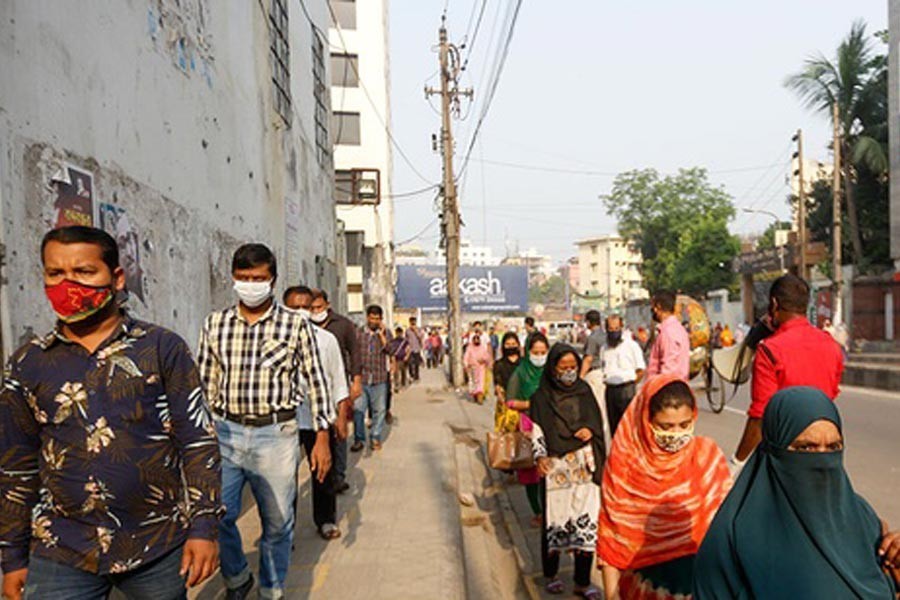Right now the hard restrictions in the country to contain infection appears to have made some impact. Unlike the previous ones, this time, the implementation of the different steps appears efficiently managed. There is also a reflection of a plan executed well. For instance, restricting the banking activities four days a week with a three-hour transaction was the right decision. The movement of people also has become reasonably limited during the week.
No doubt that the police, rapid action battalion (RAB), border guards and army troops on the streets play an influential role to enforce the restrictions. Instead of providing so-called movement pass, which had no legal basis, identity cards of the staff members in specific sectors and services kept outside the lockdown is also working well. Unlike the restrictions during the last two weeks in April, there is almost no harassment by law enforcement agencies so far. Penalising for ignoring or violating the lockdown gives a strong message that there is little scope to escape for those who have no valid reasons to go outdoors. Not that all the penalties were rightly handed over, and definitely, there are some flaws.
Nevertheless, this time a large number of people extend their cooperation to make the lockdown effective. Some do this in fear of grilling by the law enforcement agencies and the penalty imposed by them. Some other realises the necessity of contacting the infections.
Again, those who have no option but to work in factories and offices suffered more during the lockdown. In the absence of public transport, they have to walk extra miles daily and, most of the time, resorted to wading through the submerged roads in Dhaka and surrounding areas due to downpours and waterlogging. Moreover, as they have to get to work in the rain with their attires wet in the rainy season, they are at risk of being caught cold and flu. Thousands of workers in the export-oriented ready-made garments (RMG) factories have been going through these sufferings every day. In the interest of RMG industry, the government allowed operation of factories during the lockdown. There is, however, no minimum facility for the poor workers. The sad story of their commuting ordeal continues.
Against this backdrop, it is now time to think about providing lockdown allowance to low-paid workers. In the garment industry, it should be the factory owners' responsibility to give some additional allowances to their workers. However, this will be a daydream as most of them are even reluctant to pay the regular wages. Any tiny additional payment is too much for them and they will seek it from the exchequer! In that case, the government should come forward to directly transfer some cash to the RMG and the other factory workers who have been working during the lockdown.
The government also needs to extend such allowances to other low-paid workers who take the trouble of going out for work as they are exempted from the restrictions. These workers are running the wheels of the economy amidst the pandemic and deserve minimum recognition. When the government is generous to provide incentives to the factory owners at the expense of taxpayers and cannot ensure the transfer of rightful dues to the workers, it has to intervene directly.


